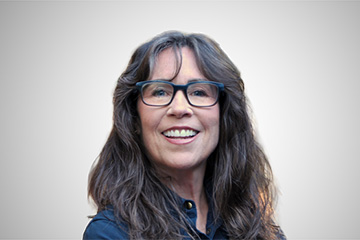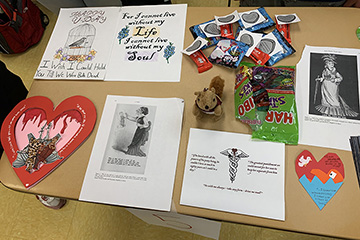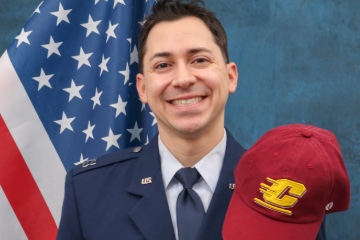Real health care challenges meet real solutions
Unique program trains CMU students to lead the way as problem solvers
There's one sure way to learn how to solve problems and evaluate the solutions: Do it for real.
Just ask the group of Central Michigan University students involved in a pioneering yearlong program called Emerging Leaders in Health Disparities.
Powering the project are "solution pools," teams of students, faculty and community partners who come together to learn about local and global health disparities, develop solutions to address them through creative thinking and technology, and then assess how well the solutions work.
"This is a think tank that's focused on solving real-world mental health problems in Michigan," said Psychology faculty member Larissa Niec Davila. "The whole thing is novel."
Niec Davila and fellow Psychology faculty member Sarah Domoff created the two-part special topics course, PSY 501, backed by a grant from CMU's President and Provost's Fund for Program Innovation and Excellence.
Niec Davila said it's the first program of its kind in the country — and a hit with the 10 undergraduate and two graduate students who began piloting it in the spring semester.
"We had 100% attendance," she said. "Every single student attended every single class."

Pooling resources
Solution pool participants come from different disciplines and majors: psychology, health professions, pre-medicine, public health, social work, exercise science and more. The first community partners are Community Mental Health for Central Michigan and a coalition led by the Delta Schoolcraft Intermediate School District in Michigan's Upper Peninsula.
In this first year, the teams are tackling three public health challenges:
- Substance misuse, especially by girls, in the U.P. The team's solutions focus on building communication between schools and parents, and boosting positive social opportunities for children.
- Low levels of child physical activity and a 64% rate of childhood obesity in the U.P. Solutions include tools to track and graph amounts of physical activity and offer community rewards.
- Underuse of mental health support services in mid-Michigan's Clare and Gladwin counties. The team is working to upgrade CMHCM's website and social media presence.
Students spent the spring semester learning about the issues and developing solutions using the Creative Problem Solving model. One of their ideas, to address both of the U.P. challenges, is an innovative "photovoice" project. This fall, K-12 students and teachers will express ideas about active and healthy lifestyles through photography and voice recordings that will be collected online and in a visual exhibition.
The goal is to allow policymakers and health-related organizations to see what the community thinks about healthy lifestyles, and therefore provide funding and resources to promote active and healthy living in these communities.
In April, the students unveiled all of their solutions — along with video public service announcements — to the community partners at a presentation also attended by CMU college deans, Provost Mary C. Schutten and President Bob Davies.
This summer, six of the students are turning the plans into action through fellowships. Come fall semester, the teams will begin to analyze outcomes.
Niec Davila and Domoff designed the program for 20-40 students a year. They invite students to register for the next cohort, which will take on new challenges beginning in Fall 2022.
'More than prepared'
Three students in the Emerging Leaders in Health Disparities program share their reflections:
Bianca Buza
- Hometown: Madison Heights, Michigan.
- Status: May 2021 graduate with a Bachelor of Science degree in psychology and early childhood development and learning. She will return in fall 2021 to finish out the Emerging Leaders project.
- Goals: Career as a licensed clinical child psychologist working with children who struggle with behavioral problems related to family trauma, abuse and family conflict.
- In her words: "Through this program and the work we've done in addressing community issues, I have learned how to conduct careful research, apply it to real-world problems and share this information so others can build on it. I feel more than prepared to describe my knowledge as a researcher to employers and graduate program interviewers."
Danielle King
- Hometown: Flint Township, Michigan.
- Status: Senior studying health administration.
- Goals: To work in public health and public policy, specifically on policies that help people of marginalized identities get equitable health care.
- In her words: "This program has allowed me to learn how to work in an interdisciplinary team. I think it is essential to work with people from different backgrounds to leverage the strengths of individuals toward a common goal. Also, this program showed me the immense amount of research and planning that goes into implementing solutions. I learned about the importance of building relationships with communities to avoid harm, which will help me if I get to influence policy."
Emma Skogseth
- Hometown: Greenville, Michigan.
- Status: Senior double majoring in psychology and child development.
- Goals: Attend an interdisciplinary doctoral program with educational, developmental and psychological perspectives. Collaborate with professionals from other disciplines on community-based projects, create and advocate for public policies that address disparities in education, and become a professor of psychology.
- In her words: "I have been able to come together with other students from several disciplines on a real-world project, examine health disparities through the community's lens and prepare for the rigor of graduate school."




